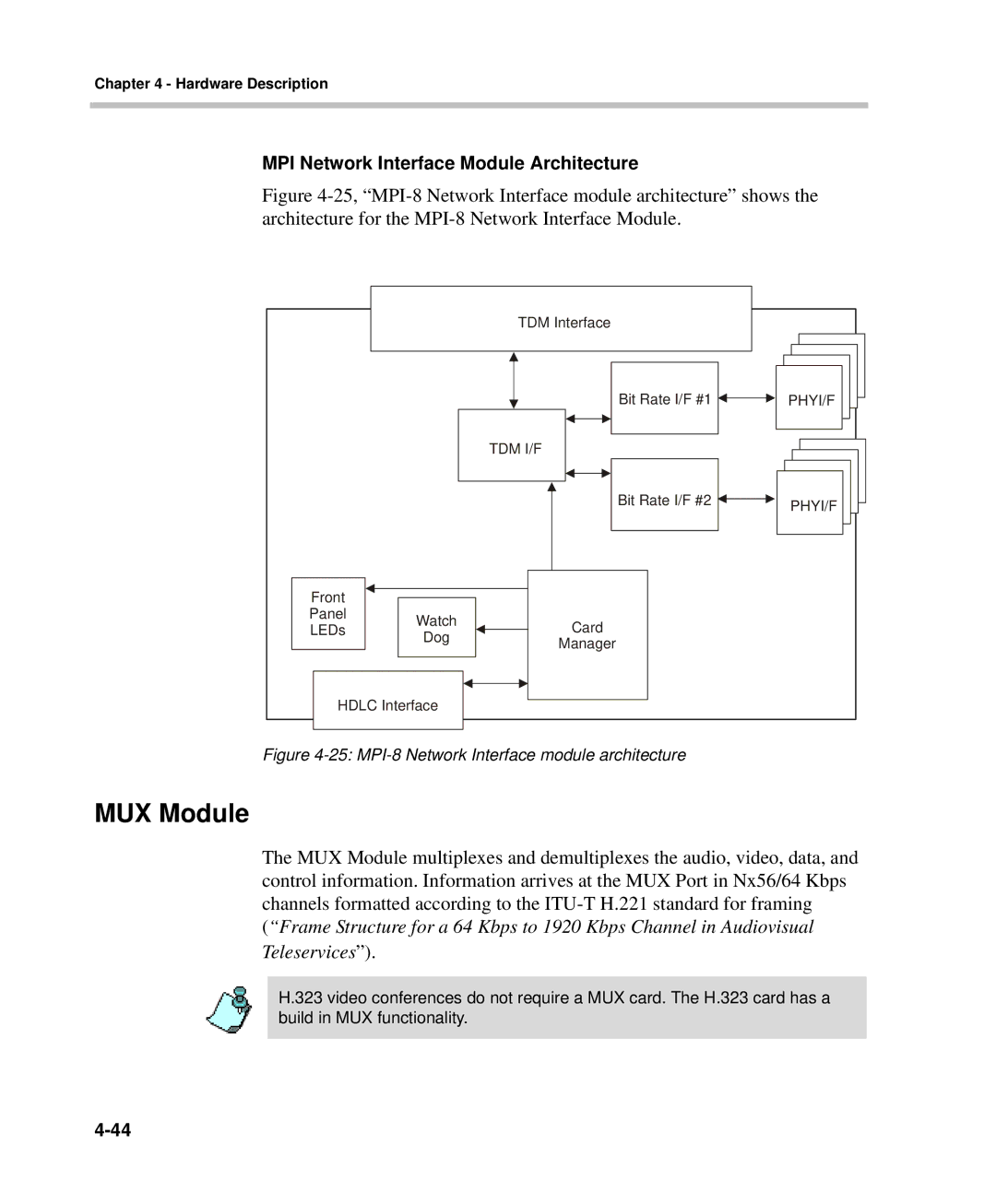
Chapter 4 - Hardware Description
MPI Network Interface Module Architecture
Figure 4-25, “MPI-8 Network Interface module architecture” shows the architecture for the MPI-8 Network Interface Module.
TDM Interface
Bit Rate I/F #1 ![]()
![]()
TDM I/F
Bit Rate I/F #2 ![]()
![]()
|
|
|
|
|
|
|
|
|
|
|
|
| Front |
|
|
|
|
|
|
|
|
| |
|
|
|
|
|
|
|
|
|
| ||
| Panel |
|
| Watch |
|
|
| Card | |||
| LEDs |
|
|
|
|
| |||||
|
|
| Dog |
|
|
| |||||
|
|
|
|
|
|
|
| Manager | |||
|
|
|
|
|
|
|
|
|
|
| |
|
|
|
|
|
|
|
|
|
| ||
|
| HDLC Interface |
|
|
|
|
|
| |||
|
|
|
|
|
|
|
| ||||
|
|
|
|
|
|
|
| ||||
|
|
|
|
|
|
|
|
|
|
|
|
|
|
|
|
|
|
|
|
|
|
|
|
PHYI/F
PHYI/F
Figure 4-25: MPI-8 Network Interface module architecture
MUX Module
The MUX Module multiplexes and demultiplexes the audio, video, data, and control information. Information arrives at the MUX Port in Nx56/64 Kbps channels formatted according to the
Teleservices”).
H.323 video conferences do not require a MUX card. The H.323 card has a build in MUX functionality.
